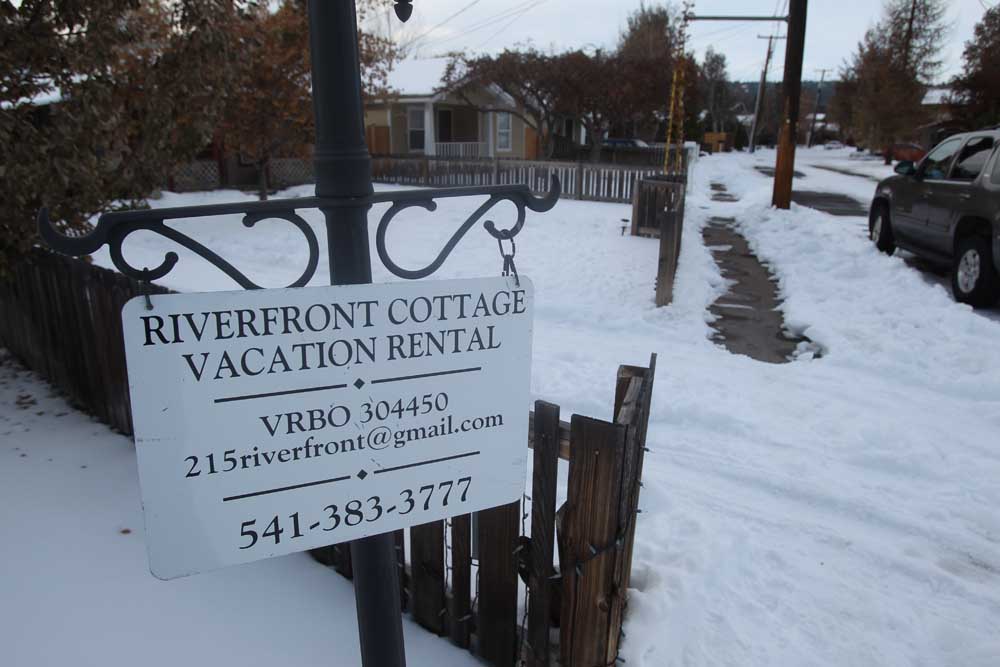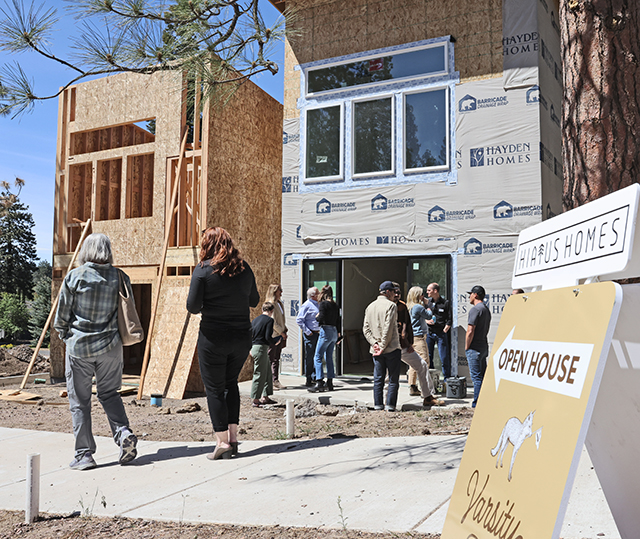Volunteers work to address vacation rentals in Bend
Published 12:00 am Friday, January 9, 2015

- Andy Tullis / Bulletin file photoNew regulations intended to tame the growth of short-term vacation rentals in Bend are working well, according to a presentation Wednesday night by city staff to the Bend City Council. Some residents who disagree spoke at the meeting.
Should a home rental be regulated the same way as a room rental? How many vacation properties are too many in a neighborhood? And how much time and money should the city of Bend spend evaluating new rentals?
These are some of the questions a group of 23 volunteers selected by the City Council are weighing as they work to revamp the city’s short-term vacation rental policies by late February, with the aim of the City Council voting on proposals by March.
The volunteer task force was created after a group of residents, concentrated in the Old Bend and River West neighborhoods, began criticizing the impact a growing stock of rentals was having around their homes. Currently, there are 536 rentals in the city. In particular, residents have complained about noise and a lack of parking. The task force, which began meeting in November, features not only those concerned about livability, but also owners and managers of rentals.
At a task force meeting Thursday evening, Assistant City Manager Jon Skidmore charged the volunteers with agreeing on proposals that the city’s staff could turn into code. Skidmore noted the task force had to reach consensus on a variety of issues during the meeting in order to give the city time to develop codes for review at the group’s next meeting Jan. 22.
“It’s a lot to do. We can’t have everyone sitting on the fence. We need to make progress,” Skidmore said at the outset.
The brisk pace had been encouraged both by critics of rentals and even some owners. Those concerned about livability are worried a flood of new rentals will be established before any stricter regulations are enforced, especially if nothing new is in place before the summer. Owners, meanwhile, have said they don’t want their businesses stuck in limbo.
At the meeting, however, the task force ran out of time to address all of the issues on its agenda and devoted the last section of the night to debating whether to extend the meeting or to reschedule. In the end, the group ended the meeting on time and tentatively decided to hold future meetings until all items had been addressed.
The possibility of adding a meeting and maybe extending the process is still an option, Skidmore said afterward.
Some task force members suggested the group needed a lot more time, but Councilor Sally Russell, the only city councilor in attendance, encouraged the group to do its best to stay on track, noting the “quickly expanding permitting” happening across the city.
“Our community is really counting on you right now,” she said.
One issue the task force quickly reached consensus on was whether to regulate rentals in the same way across the entire city or to differentiate policies by neighborhood.
“While there may be problem areas now in River West and Old Bend, 10 years from now, we may build a water park by Mountain View, and we’d be back here at this table saying why didn’t we think long term,” said Jason Eckhoff, who manages rentals.
Nonetheless, the task force agreed to differentiate its policies based on an area’s zoning. For example, the task force agreed to keep a simple approval process in place in neighborhoods that were designed as resorts, such as Mt. Bachelor Village, and areas zoned for commercial purposes and a mix of uses. The group also decided to treat residential neighborhoods, including those zoned for different densities, the same.
Once the task force got to the topic of how to limit rentals within residential neighborhoods, however, the group ran out of time. Task force members, however, took a straw poll on what methods to use to limit where and how many rentals spring up. Under consideration at the next meeting will be a limit on the percent of lots in an area that are allowed to be rentals. Another option task force members liked would combine a percent limit with a proximity limit, meaning there would be distance requirements between rentals.
A cap on the overall number of rentals in the city did not receive much support.
Left on the agenda for the next meeting in two weeks is how to differentiate home from room rentals and whether a rental permit should stay with a property ie it has been sold.
— Reporter: 541-633-2160,
tleeds@bendbulletin.com






